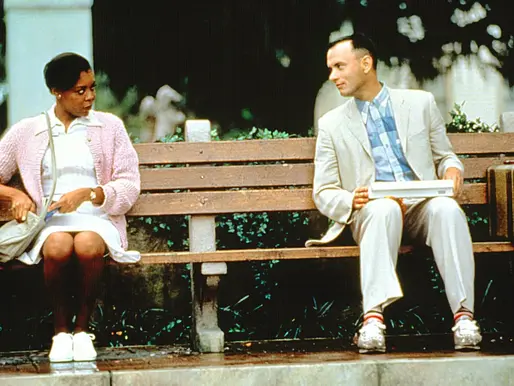top of page
Search
Sci Fi - Fantasy
Classic Science Fiction or Fantasy Films from 1930 - 1999


Total Recall (1990)
Total Recall (1990) is a mind-bending science fiction action film that fused the bombast of late-1980s action cinema with the cerebral paranoia of Philip K. Dick’s speculative fiction. Directed with bold intensity by Dutch provocateur Paul Verhoeven—coming off the success of RoboCop (1987)—Total Recall is a unique hybrid: a philosophical puzzle wrapped in ultraviolent thrills, enhanced by groundbreaking visual effects and anchored by one of Arnold Schwarzenegger’s most iconic

Soames Inscker
5 min read


Jurassic Park (1993)
Jurassic Park (1993) is a cinematic milestone that revolutionized the landscape of science fiction and special effects in modern cinema. Directed by Steven Spielberg and based on Michael Crichton's bestselling 1990 novel, the film combines cutting-edge technology, gripping storytelling, and philosophical undertones to deliver a thrilling spectacle that has captivated audiences for decades.

Soames Inscker
4 min read


12 Monkeys (1995)
Terry Gilliam’s Twelve Monkeys is a dark, cerebral, and haunting science fiction film that stands as one of the most provocative entries in the genre from the 1990s. Released in 1995, it melds time travel, dystopian paranoia, and psychological instability into a fractured narrative that challenges the viewer’s perception of reality.

Soames Inscker
4 min read


Forrest Gump (1994)
Robert Zemeckis’s Forrest Gump is an enduring cinematic classic that combines humor, heart, and history to tell a uniquely American story. Released in 1994, the film achieved both critical acclaim and massive popular success, winning six Academy Awards including Best Picture, Best Director, and Best Actor for Tom Hanks. It remains beloved for its innovative storytelling, memorable characters, and the way it interweaves a fictional life with real historical events.

Soames Inscker
3 min read


The Sixth Sense (1999)
M. Night Shyamalan’s The Sixth Sense is a landmark psychological thriller that captivated audiences upon its release in 1999 and has since become a cultural touchstone. Known for its haunting atmosphere, emotional depth, and one of the most famous plot twists in cinematic history, the film masterfully blends supernatural elements with a poignant exploration of trauma, grief, and connection.

Soames Inscker
3 min read


The Truman Show (1998)
When The Truman Show premiered in 1998, it felt both wildly imaginative and eerily prescient. A surreal, satirical fable about media manipulation, personal freedom, and constructed reality, Peter Weir’s film is one of the sharpest and most original works of the 1990s. Anchored by a revelatory performance from Jim Carrey, it deftly balances existential drama, biting social commentary, and unexpected emotional resonance.

Soames Inscker
4 min read


Toy Story (1995)
When Toy Story debuted in 1995, it not only captivated audiences — it revolutionized the entire landscape of animated cinema. As the first feature-length film created entirely with computer-generated imagery (CGI), Toy Story was groundbreaking. But its technical achievement is only one part of its legacy. At its core, the film is a timeless, emotionally rich, and delightfully entertaining story that appeals equally to children and adults.

Soames Inscker
3 min read


The Matrix (1999)
When The Matrix exploded onto screens in 1999, it didn't just entertain—it rewired the expectations of what science fiction, action, and cinema itself could be. Blending dazzling visual effects with philosophical depth, the Wachowskis’ visionary work became an instant cultural touchstone. At once a cyberpunk action film, a philosophical treatise, and a generational myth, The Matrix is one of the most influential and innovative films of the late 20th century.

Soames Inscker
4 min read


Forbidden Planet (1956)
Forbidden Planet, directed by Fred M. Wilcox and released by MGM in 1956, stands as one of the most influential and groundbreaking science fiction films of the 1950s. It marked a watershed moment in the genre, establishing a template that would heavily influence subsequent science fiction storytelling in cinema and television—particularly Star Trek and 2001: A Space Odyssey.

Soames Inscker
4 min read


Topper Returns (1941)
Topper Returns (1941) is the third and final entry in the delightfully offbeat Topper series, which began in 1937 with Topper, followed by Topper Takes a Trip (1938).

Soames Inscker
4 min read


Topper Takes a Trip (1936)
Topper (1938) is the spirited sequel to the 1937 supernatural comedy Topper, one of the most charming and original fantasy comedies of Hollywood’s Golden Age. While sequels often pale in comparison to their predecessors, Topper Takes a Trip retains much of the original’s whimsical tone, buoyed by a returning cast, a lighthearted script, and the luminous presence of Constance Bennett.

Soames Inscker
4 min read


Sinbad and the Eye of the Tiger (1977)
Sinbad and the Eye of the Tiger (1977) is the third and final entry in the Columbia Pictures trilogy of fantasy-adventure films featuring the legendary sailor Sinbad, following The 7th Voyage of Sinbad (1958) and The Golden Voyage of Sinbad (1973).

Soames Inscker
5 min read


Ulysses (1954)
Ulysses (1954), a lavish Italian-American co-production directed by Mario Camerini, represents one of the most ambitious attempts of the postwar era to bring Homer’s Odyssey to the silver screen. Starring Kirk Douglas in the titular role, this film blends classical myth, mid-century cinematic spectacle, and psychological depth to retell one of literature’s most enduring epics.

Soames Inscker
5 min read


Batman (1989)
Tim Burton’s Batman (1989) stands as one of the most influential comic book films of all time. Released during a period when superhero movies were mostly campy or low-budget affairs, Batman redefined the genre with its darker tone, gothic aesthetic, and a sophisticated, noir-inflected narrative. It was not only a box-office smash but a cultural phenomenon, sparking “Batmania” across the globe and proving that comic book adaptations could be serious, stylish, and commercially

Soames Inscker
5 min read


Horror of Dracula (1958)
Horror of Dracula (1958), known simply as Dracula in its native UK, marks a pivotal moment in horror cinema. Directed by Terence Fisher and produced by Hammer Films, the movie revitalized Gothic horror for a new generation, introducing bold color, heightened sensuality, and unprecedented violence to a genre that had become staid and theatrical by the mid-20th century.

Soames Inscker
5 min read


Splash (1984)
Splash is a landmark film in several respects. Directed by Ron Howard and released in 1984, it marked the debut feature of Disney's newly established Touchstone Pictures label—created to produce more mature fare than the traditional Disney brand allowed.

Soames Inscker
4 min read


Peter Pan (1953)
Few animated films capture the idea of childhood escapism as purely as Walt Disney’s Peter Pan (1953). Adapted from J.M. Barrie’s beloved 1904 play and 1911 novel, the film promised a technicolour flight to Never Land—a realm where children never grow up, pirates and fairies are real, and the problems of the adult world vanish in clouds of imagination.

Soames Inscker
4 min read


Doctor Dolittle (1967)
When Doctor Dolittle premiered in 1967, it aspired to be the next great Hollywood musical extravaganza in the tradition of My Fair Lady and The Sound of Music. With Rex Harrison reprising his unique brand of speak-singing charm, lavish production values, and exotic locales, 20th Century Fox mounted a grand, ambitious adaptation of Hugh Lofting’s beloved children’s books.

Soames Inscker
5 min read


Star Trek V: The Final Frontier (1989)
Star Trek V: The Final Frontier stands as a fascinating case in the history of the Star Trek franchise. Released in 1989 and directed by William Shatner, who also stars as Captain Kirk, it followed the massive success of Star Trek IV: The Voyage Home (1986), which had revitalized the franchise with humour, warmth, and mass appeal. The fifth entry in the series aimed higher—tackling metaphysical questions, religious themes, and internal conflicts among the crew.

Soames Inscker
4 min read


Star Trek IV: The Voyage Home (1986)
Star Trek IV: The Voyage Home is one of the most unique entries in the long-running Star Trek franchise. Released in 1986 and directed by Leonard Nimoy, the film marked a daring departure from the more serious and militaristic tones of its immediate predecessors. Instead, it delivered a vibrant, humorous, and environmentally conscious time-travel adventure that brought the crew of the USS Enterprise to 20th-century San Francisco—with no battles, no villains, and no starship-t

Soames Inscker
4 min read
bottom of page


